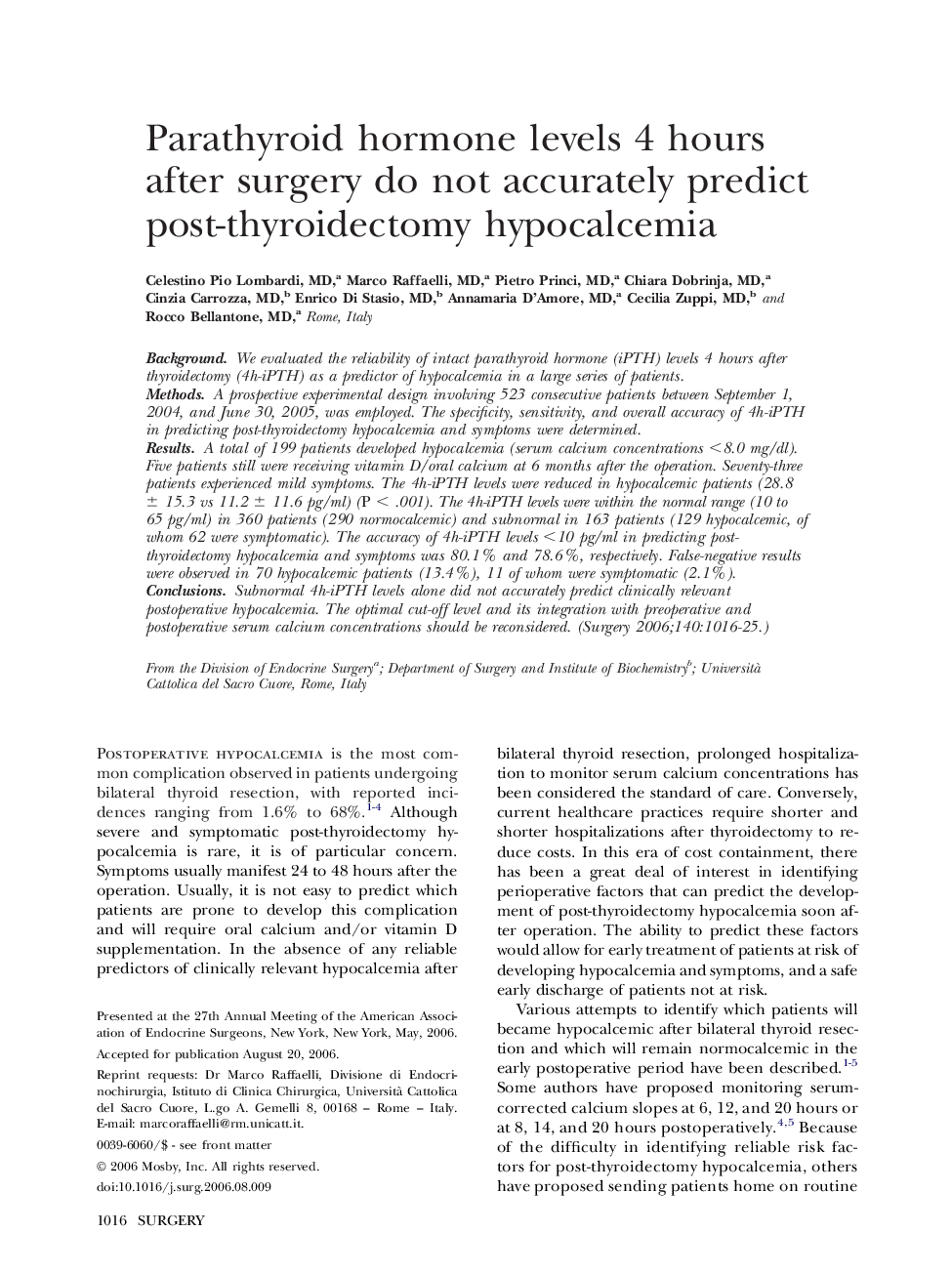| Article ID | Journal | Published Year | Pages | File Type |
|---|---|---|---|---|
| 4310469 | Surgery | 2006 | 10 Pages |
BackgroundWe evaluated the reliability of intact parathyroid hormone (iPTH) levels 4 hours after thyroidectomy (4h-iPTH) as a predictor of hypocalcemia in a large series of patients.MethodsA prospective experimental design involving 523 consecutive patients between September 1, 2004, and June 30, 2005, was employed. The specificity, sensitivity, and overall accuracy of 4h-iPTH in predicting post-thyroidectomy hypocalcemia and symptoms were determined.ResultsA total of 199 patients developed hypocalcemia (serum calcium concentrations <8.0 mg/dl). Five patients still were receiving vitamin D/oral calcium at 6 months after the operation. Seventy-three patients experienced mild symptoms. The 4h-iPTH levels were reduced in hypocalcemic patients (28.8 ± 15.3 vs 11.2 ± 11.6 pg/ml) (P < .001). The 4h-iPTH levels were within the normal range (10 to 65 pg/ml) in 360 patients (290 normocalcemic) and subnormal in 163 patients (129 hypocalcemic, of whom 62 were symptomatic). The accuracy of 4h-iPTH levels <10 pg/ml in predicting post-thyroidectomy hypocalcemia and symptoms was 80.1% and 78.6%, respectively. False-negative results were observed in 70 hypocalcemic patients (13.4%), 11 of whom were symptomatic (2.1%).ConclusionsSubnormal 4h-iPTH levels alone did not accurately predict clinically relevant postoperative hypocalcemia. The optimal cut-off level and its integration with preoperative and postoperative serum calcium concentrations should be reconsidered.
